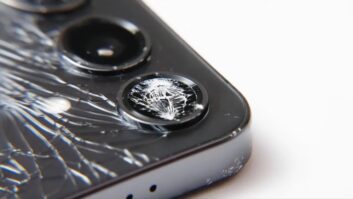Seattle – RealNetworks dropped
plans to market its DVD-copying
software as part of a settlement with Hollywood studios, which alleged in a lawsuit that the
software violated the Digital Millennium Copyright Act (DMCA) and a licensing agreement.
As part of the
settlement, RealNetworks will also pay $4.5
million to the plaintiffs for court costs and fees, and the company will withdraw its
appeal of a preliminary injunction that
barred the marketing of the
software while a trial on the lawsuit’s merits was underway.
The $29.99 RealDVD software copied encrypted movie DVDs to a PC’s
hard drive or to an external hard drive for storage and playback, locking the
content to the drive to prevent further copying or sharing over file-sharing
networks. Up to four additional PCs could be registered with Real at a cost of
$19.99 each to play copies saved to an external USB
hard drive.
The settlement also
applies to a planned set-top DVD
jukebox, which would store movie
DVDs on an internal hard drive.
RealNetworks contended such restricted copying is allowed under
federal law as a fair use, but the studios contended that under the DMCA,
copyright owners must authorize what they considered Real’s “circumvention” of DVD copy-prevention technology. Their argument
would also apply to residential movie servers that stream copied DVDs to multiple
rooms of a house.
In issuing the
preliminary injunction last August, a district court judge in San Francisco
contended a full trial would likely find the software in violation of the
DMCA and the terms of Real’s Content Scramble
System (CSS) license, issued by the DVD Copy Control Association (DVD CCA). The judge also contended that Hollywood would suffer “irreparable harm” if the
products went on the market while a
full trial was underway because Real’s technologies do not limit
multiple consumers from copying the same disc, nor do the technologies prevent consumers from copying
rented discs.
The software has been off
the market since October 2008, when the judge imposed a temporary
restraining after the studios filed their lawsuit. The judge imposed the
preliminary injunction in August 2009.
That injunction and
settlement, said MPAA general counsel Daniel Mandil, “affirm what we
have said from the very start of this litigation. It is illegal to bypass the copyright protections built into
DVDs designed to protect movies against theft.”
The MPAA, Mandil
continued, “will continue to vigorously pursue companies that attempt to
bring these illegal circumvention products and devices to market.”
The DMCA, the MPAA said, prohibits
the making or selling of any technology, product,
service or device designed to “circumvent
measures that effectively protect copyrighted content.” The CSS license, the MPAA continued, “bars companies
from making a DVD copier.”
For his part,
RealNetworks president and acting CEO Bob Kimball called the settlement “another step toward fulfilling our
commitment to simplify our company and focus on our core businesses.” Until the dispute broke, “Real had
always enjoyed a productive working relationship with Hollywood,” he said. “With this litigation
resolved, I hope that in the future we can find mutually beneficial ways to use
Real technology to bring Hollywood’s great work to
consumers.”
The settlement comes after Real founder and chairman Rob Glaser
was stripped of his position as CEO by the board and Real’s fiscal-2009 net
loss of $212 million.
In issuing the preliminary injunction last August, the district court stated, among other findings, that:
* The DMCA “broadened copyright owners’ rights beyond the Sony
holding [1984 Betamax case]” and “did clearly rebalance the competing interests
of copyright owners against copyright users.”
* Products that copy DVD
content to a hard drive, including their encryption, violate the DMCA and CSS license stipulations because they remove other CSS copy-control technologies.
* The CSS license
agreement “does not give license to copy DVD
content to a hard drive permanently.”













